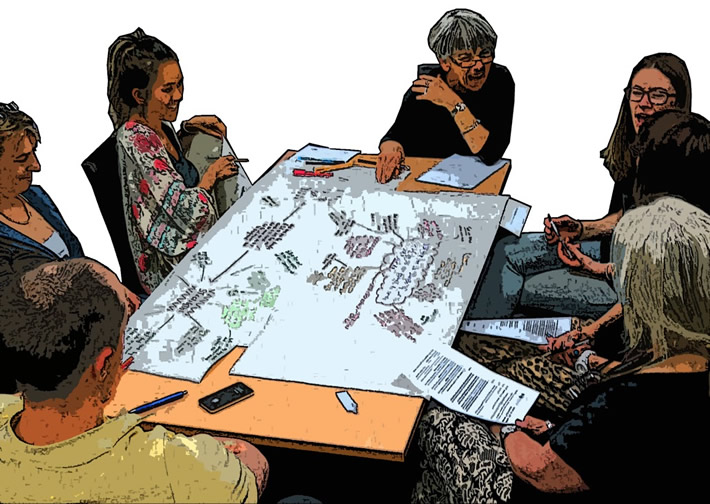Research, Review & Evaluation
Our approach to research, review and evaluation is one of partnership where we create the conditions for all voices to heard.
When scoping a new project, our team spends time to understand our partners brief and their aspirations for the project. We seek to clarify the purpose and parameters of the research, review or evaluation and to discern with our partner what it is they need to know and understand. It is important in these early stages that we listen to our partners questions, what they are seeking to explore and how they want to us to approach the research, review or research.
We clarify with our partners how the research, review or evaluation findings will be used and by whom and determine the audiences and their expectations for any final reports.
Our partners are invited to determine the level of involvement they prefer and together we identify how best to enable this to occur. If internal capacity building is one of the goals of the project, we co-design how this might occur and discuss roles, implications and responsibilities.
Our approach to school review
The EdPartnerships team have partnered with schools from the Department of Education Victoria and the Melbourne Archdiocese Catholic Schools to undertake the School Review Process. While each jurisdiction has slightly different expectations our team have been engaged as a Critical Friend, a Research Partner and review partner.
The following principles guided our approach to School Review:
- Young learners, teachers, support staff, leaders and families, along with external EdP researchers, are partners in the process; all learn with and from each other as they collectively engage in a process of deeply understanding context – ‘how things are around here, and why’.
- Optimal agency is offered to young learners, teachers, support staff, leaders and families in the research process where all are supported to fully participate and contribute to the collective learning and future directions.
- Opportunities are designed for equity of voice, where all are invited to question, seek understanding and listen as a way of exploring new possibilities for future learning and action.
- Time and space for extended dialogue that involves complex and challenging conversations as a way to understand culture.
